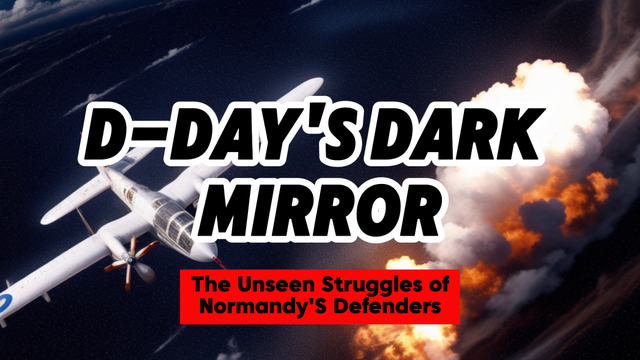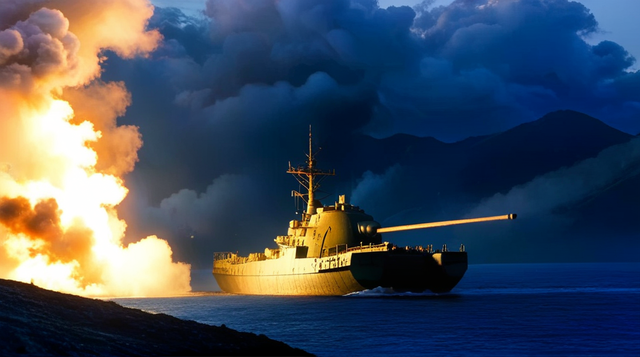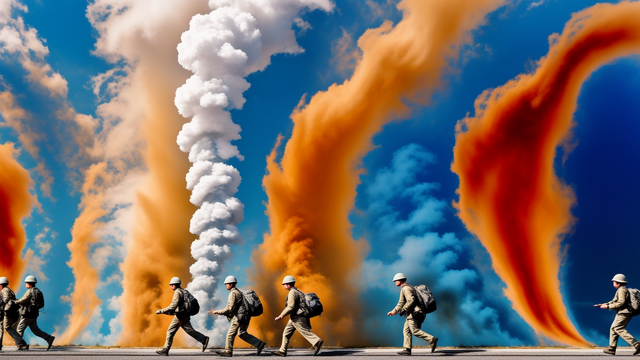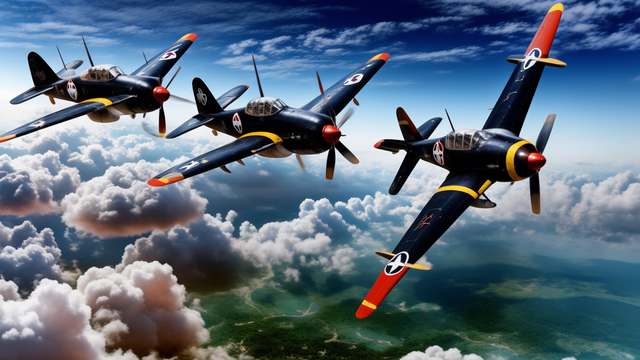D-Day's Dark Mirror: The Unseen Struggles of Normandy's Defenders

In the river of history, some stories are retold again and again, while others lie quietly beneath the dust of the years. Today, we will awaken those dormant voices and unveil the lesser-known side of the Normandy landings—the stories of the defenders.
You may be familiar with the grand imagery of the Normandy landings, but have you ever considered the inner world of the German soldiers who greeted the Allies on the beaches? How does their view of the world differ from what we know?

As military historian Robert M. Citino puts it, the D-Day landings have become one of the Allies' great historical epics, while for the other side, the romance fades, leaving behind the uninspiring spectacle of a once-proud military force no longer up to the challenge.
But today, we are not seeking sympathy, nor are we discussing politics; we are simply interested in uncovering the human element of the less-discussed side in this almost mythical clash.
In the autumn of 1943, Hitler foresaw the Allies' offensive against the Western Front. But spring passed, and the Allies had yet to strike, creating an atmosphere of unbearable tension for the Germans.
On the Atlantic coastline, two marshals—von Rundstedt and Rommel—fundamentally disagreed on the issue of tank placement. Rommel knew that without air superiority, moving tanks across the countryside was an almost impossible task, as the North African campaign had taught him.

Meanwhile, the German soldiers could only do one thing to mask their apprehension: they made jokes. One went like this: "If you see a black plane, it's British; if you see a white plane, it's American; when you see nothing at all, it's the Luftwaffe."
On the beaches of Normandy, soldiers were busy building defensive fortifications and setting up obstacles. Many of them, including Polish, Georgian, and Soviet prisoners of war conscripted into Nazi service, were forced far from their homelands, facing an uncertain fate.
Paul Goats, who was only 17 at the time, recalled, "I hadn't had any food or water for three days." When he begged for milk from the French villagers, they told him, "Go away, the Allies have already landed with tanks."
On the eve of D-Day, more than 2,000 Allied bombers began to wreak havoc on the coast. Subsequently, paratroopers also began to land nearby, engaging in skirmishes with the defenders.
As the sun rose, a wall of ships appeared on the horizon, and the naval bombardment began. Paul Goats, looking at the thousands of ships and landing craft, as well as the barrage balloons in the sky, knew that the wall was lost.
In this, one of the greatest battles in world history, every beach has its story to tell. Whether at Utah, Sword, Gold, Juno, or Omaha beaches, the German soldiers, lacking air support, were still ready to face the battle.
Their stories, though forgotten in the river of history, are brought back into our view today. Because everyone on the battlefield, regardless of victory or defeat, has their own story, and all are worth remembering.
We delve into the five main beaches of the Normandy landings—Utah, Sword, Gold, Juno, and Omaha. Each beach has its unique combat story, each filled with courage, sacrifice, and the brilliance of humanity.
At Utah Beach, the German soldiers, despite the lack of food and water, still held their positions. Their commander, Rommel, due to a misjudgment of the Allies' intentions, failed to return to the battlefield in time, leading to command confusion at a critical moment for the Germans.
The battle at Sword Beach was equally fierce. The German soldiers, exhausted from a night of bombing, still tried to organize an effective resistance. However, the Allied naval gunfire and the sudden attack of the paratroopers quickly shattered their defenses.
The battle at Gold Beach was a race against time. The German soldiers, under the Allied air superiority, could hardly organize an effective defense. Their resistance quickly crumbled under the fierce onslaught of the Allies.
The battle at Juno Beach was a tough tug-of-war. The Canadian soldiers had to face not only the tenacious resistance of the Germans but also the complex terrain of the beach. But their bravery and determination ultimately helped them achieve their goals.
The battle at Omaha Beach was the most brutal. The German soldiers, using the terrain advantage, built strong defensive fortifications. However, the continuous reinforcement of the Allies and the shortage of ammunition for the Germans eventually led to the collapse of the German defense line.
These stories, these soldiers, their lives, their dreams, their fears, their sacrifices, are all part of this great battle. Their stories remind us that war is not just about victory and defeat, but also about human stories.
We hope that through this video, more people can understand the other side of the Normandy landings and the voices forgotten in history. We hope that through these stories, people can have a deeper understanding of the complexity of war and the diversity of human nature.
If you are moved by these stories, if you want to know more about the history of the Normandy landings, please follow our channel and subscribe to our videos. We will take you together to explore more forgotten history and discover more unknown stories.
In the river of history, some voices may be forgotten, but their stories, their spirit, will always inspire us. Let us remember the soldiers who fought bravely on the beaches of Normandy, whether they were victors or vanquished, they are all part of this great battle.



Hello Please Follow Me Back I have Followed You